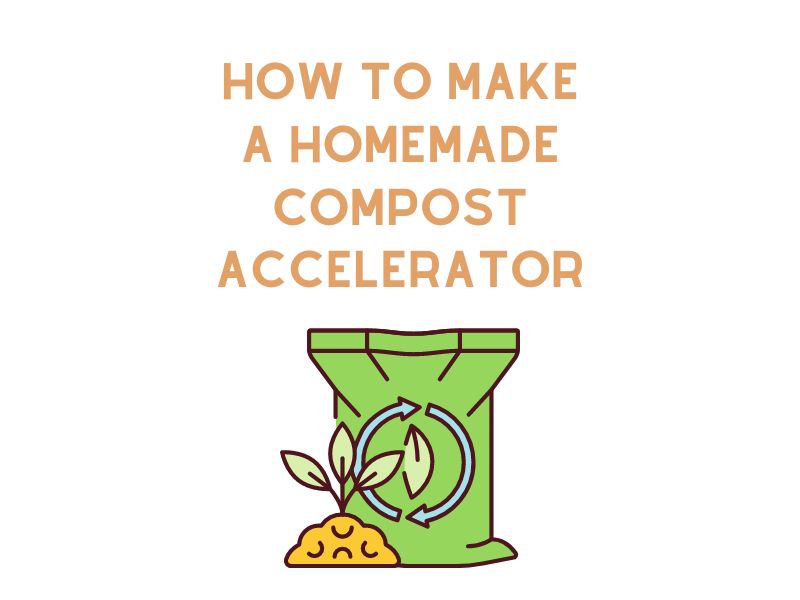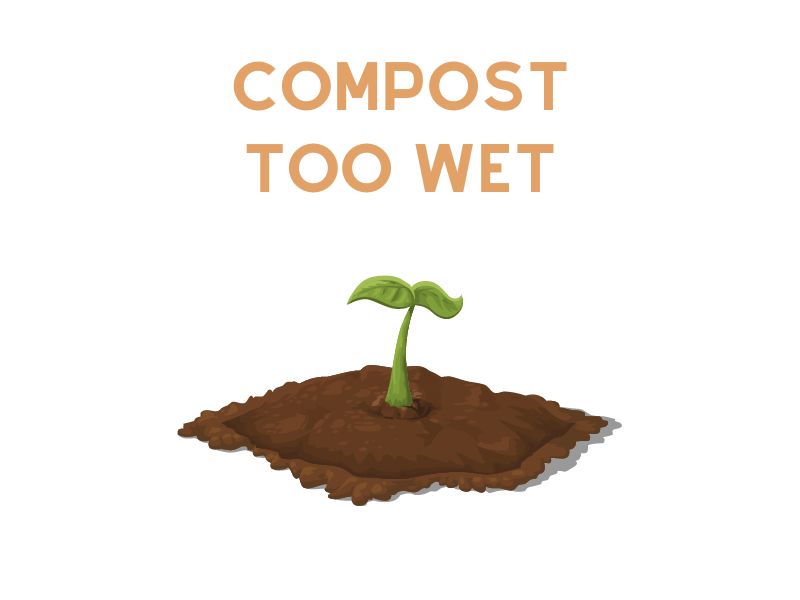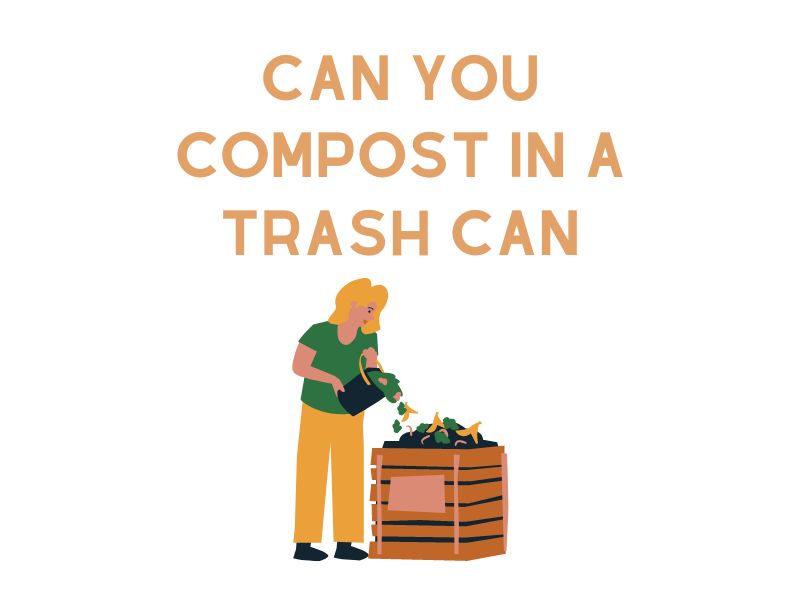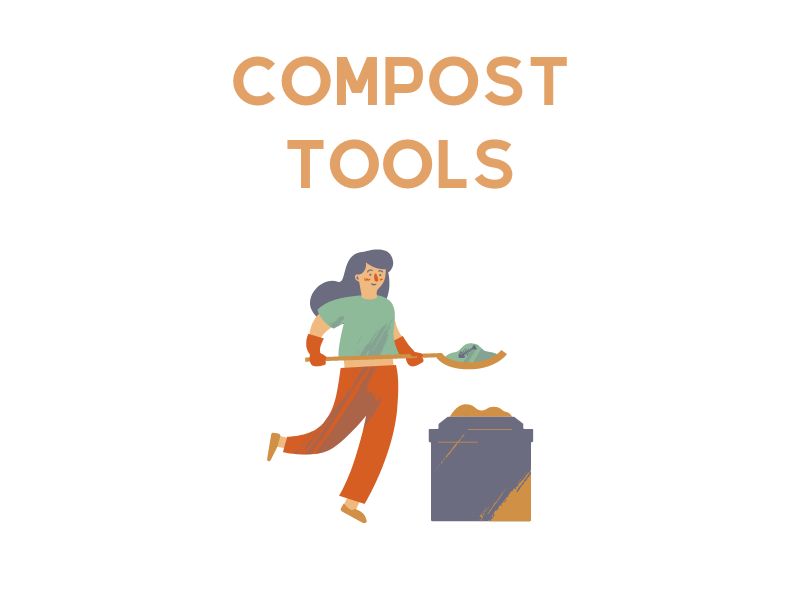What to do if the compost pile takes forever to rot? It makes sense to create another pile for cuttings and leftover fruit and vegetables so that the organic waste can be filled up in turn and can mature into humus in peace. But if you only have one composter, there is a trick you can do to speed up the process.
To really get the decomposition going, it’s not necessary to buy a commercial compost accelerator or a plastic quick composter. You can simply inoculate the compost with a homemade, natural solution that will help the rotting process, make the pile collapse faster, and result in valuable humus soil sooner.
Understanding The Basics of Composting
The main components in composting are carbon and nitrogen, often referred to as green and brown materials. Green materials, such as food and garden waste, are rich in nitrogen. Brown materials like dried leaves and straw provide a necessary amount of carbon. The balance between nitrogen and carbon plays a pivotal role in the efficiency of the composting process. Too much of one or the other can result in slow compost.
The decomposition of organic substances is carried out by various microorganisms, bacteria, and fungi. The presence of these beneficial organisms, combined with adequate air (aeration), warmth, and moisture, can create what is known as hot composting. As the name suggests, hot composting generates heat, which not only speeds up decomposition but also kills off pathogens and weed seeds. A hot compost pile should ideally be about a cubic foot in volume to retain the heat.
Utilizing Homemade Solutions
One of the best compost starters or compost accelerators and starters you can use is a homemade compost accelerator. This DIY compost starter is an amalgamation of simple ingredients such as yeast and sugar/molasses. When added to the compost heap, it serves as an activator, stimulating microbial activity and hence, speeding up the decomposition process.
Yet, if you’re looking for an even more organic approach, consider the organics compost starter, which uses worm humus. This substance is an excellent source of nitrogen, although human urine can also serve as a surprising yet excellent source of nitrogen.
Compost Tumblers and Other Techniques
If your space is limited or you want smaller compost piles, using a tumbler can be beneficial. A tumbler is a contained unit that allows for easy turning of the compost, ensuring even decomposition throughout the pile. Remember to aerate the compost regularly using a shovel or similar tool to ensure that air circulates throughout, aiding in decomposition.
Another technique to speed up composting is the use of bokashi, a Japanese method involving the fermentation of organic material before composting.
Finally, if you want to further increase the rate of composting, you can add some compost from a previous batch or compost tea, a liquid extract from compost. This ensures that beneficial microbes are introduced into the new compost pile, effectively kick-starting the decomposition process.
Natural Additions to Compost
Certain plants have properties that can act as compost boosters. As mentioned, plants like valerian, comfrey, nettle, and fern fronds, when fermented, produce a rich liquid that, when poured onto a compost pile in the morning when urea concentration is highest, can act as a potent compost activator. Such natural additions not only speed up the composting process but also enrich the compost, making it an effective fertilizer in agriculture and home gardening.
What You Need To Make a Homemade Compost Accelerator
- 0.5 kg sugar or 250ml molasses
- 8 l lukewarm water
- 200g worm humus and/or 1 cube yeast
Tip: Instead of commercial yeast and lukewarm water, you can also use homemade wild yeast. Since it is less concentrated, it is recommended to use twice the amount, i.e. about three to four liters.
Make and Use Compost Accelerator
Making compost accelerator is quite simple:
- Fill a bucket with lukewarm, chlorine-free water and add the cube of yeast or fresh worm humus.
- Mix the water well to bring in air.
- Now add the sugar/molasses and stir the mixture until the sugar is completely dissolved.
- Let this mixture stand for about 1 hour. Stir from time to time during this process.
- Now apply the finished compost accelerator evenly to your compost pile with a watering can, and mix it well.
- Now within the next 3 days, the temperature of the compost pile should rise. (If you want to monitor the temperature curve, we recommend a compost thermometer).
- After about 1 week, you can turn the compost pile, or mix it well again. Further application of compost accelerator is not necessary.
- The compost pile heats up again and can be used 7 days after the last turning.
Here’s How the DIY Compost Accelerator Works
Compostable waste is decomposed by microorganisms, bacteria, and fungi, as well as larger animals such as worms. When new plant waste is piled up on the compost heap, the microorganisms have to “work their way through” it before they can start their work. The yeast fungi, which immediately reach the right place with the irrigation water, multiply very quickly and accelerate decomposition. Sugar and water provide optimal working conditions for the microorganisms. Other helpful factors for rapid decomposition are a moist, warm, and airy environment. Therefore, it is important to create and maintain the compost pile properly.
A “good”, or aerobic, composting process takes place in an environment that is moist (80%), warm (>15°C) and airy (aerobic). Under these conditions, the bacteria and fungi multiply best. The energy needed for this comes from nitrogen and carbon, which should ideally be present in a ratio of 1:20. Since sometimes one of the factors is lacking, a compost accelerator is a quick way to create optimal conditions.
Tip: If you have worm compost on the balcony, you can also make a compost accelerator with fresh worm humus. The soil is teeming with microorganisms that contribute to decomposition. Add about 200 grams of worm humus to the water instead of yeast.
The dissolved warm sugar, in combination with the compost, provides an ideal breeding ground for the bacteria.
The good bacteria and fungi from worm humus thus multiply very quickly and start decomposing the biomass. The yeast is a good second choice to introduce decomposing fungi. Thanks to the molasses, there is enough energy to heat up the compost pile (hot rotting).
In order for the hot rot to drain well, the compost pile should be at least 1m³ in size, but still loosely piled up. The hot rotting will then sterilize many unwanted fungal spores and weed seeds within 24-72 hours of use.
After the hot rotting comes the maturing phase, in which the nutrients in the compost are bound. This requires far less energy.
Correct Application
It is recommended to apply the compost accelerator with a watering can. This will ensure an even application. The ideal is a dry, not too sunny day with temperatures around 20 ° C.
- Pour liquid evenly onto the compost pile
- Mix thoroughly
Now you have to wait and see. In the following three days, the temperature in the compost pile should rise. For a layman, this hot rot is difficult to judge, so it may be useful to consult a special compost thermometer from the specialized trade.
One week after the application the compost heap is again thoroughly mixed and/or if necessary moved.
How long it now takes individually until the humus can be used depends on various factors:
- Humidity
- Degree of comminution
- Material
- Temperature
- Waste composition
However, it is generally considered that after about eight to ten months, fantastic humus is formed.
Plant Mixture as a Compost Accelerator
Plants such as valerian, comfrey, nettle, or fern fronds can also speed up the compost. They are put in water so that they ferment.
After the fermentation process, mix them with water in a ratio of 1:10 and add the solution to the compost.
Frequently Asked Questions
What is a compost bin?
A compost bin is a container used to hold organic material and facilitate the decomposition process. It provides the ideal conditions for beneficial microbes to break down the organic matter into nutrient-rich compost.
How do I start composting?
To start composting, you’ll need a compost bin or container. Gather a mixture of brown and green organic materials such as garden waste, kitchen scraps, and shredded paper. Layer them in the compost bin, ensuring there’s a good balance of nitrogen-rich (green) and carbon-rich (brown) materials. Add some water to moisten the pile, and periodically turn or mix the compost to promote decomposition.
What are compost starters/accelerators?
Compost starters or accelerators are products that contain beneficial microbes and other ingredients to speed up the composting process. They provide a boost of nitrogen and other nutrients to facilitate decomposition and create high-quality compost more quickly.
Can I make my own compost starter?
Yes, you can make your own compost starter using a compost accelerator recipe. One common recipe includes ingredients such as well-aged manure, grass clippings, kitchen scraps, and garden soil. Mix these ingredients together and add them to your compost pile to provide a source of nitrogen and beneficial microbes.
What materials should I add to my compost pile?
For a successful compost pile, you should add a variety of organic materials. This can include kitchen scraps, garden waste, grass clippings, shredded paper, dried leaves, and small amounts of chicken manure. The key is to maintain a balance between nitrogen-rich (green) and carbon-rich (brown) materials.
How long does it take for compost to be ready?
The time it takes for compost to be ready can vary depending on several factors such as the composting method, the materials used, and the environmental conditions. Generally, it can take anywhere from a few months to a year for compost to fully decompose and be ready for use in the garden.
Can I use the compost before it’s fully decomposed?
Absolutely! While fresh compost may still be in the process of decomposition, it can still be used as a mulch or added to planting.
Conclusion
Composting is a rewarding process, transforming waste into a nutrient-rich medium for plants. By understanding the science behind it and utilizing the mentioned techniques, one can ensure they get the best compost in the shortest time possible. Whether you use a DIY compost starter, rely on natural plant mixtures, or simply ensure a proper balance of green and brown materials, the result is the same: quality compost for a thriving garden.








